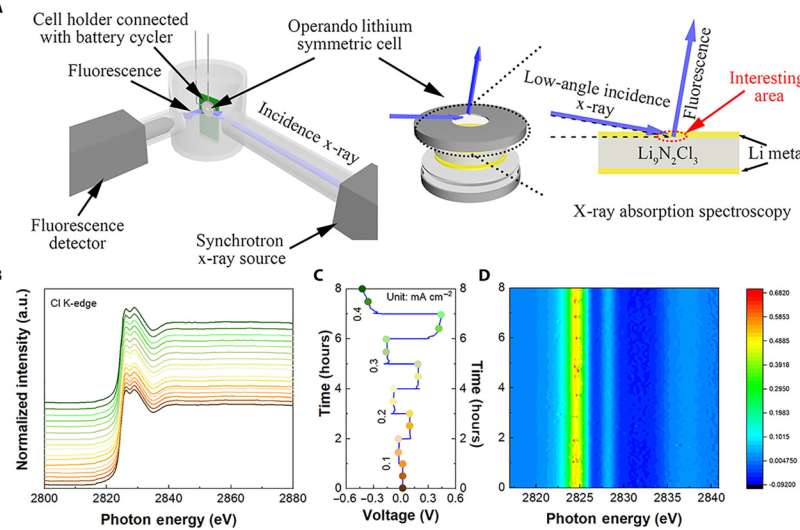
Currently, the biggest hurdle for electric vehicles, or EVs, is the development of advanced battery technology to extend driving range, safety and reliability.
New research has shown how a novel lithium-based electrolyte material, Li9N2Cl3, can be used to develop solid-state batteries that charge faster and store more energy than conventional designs. Experiments revealed the solid-electrolyte was not only stable in normal air environments, but it also inhibited the growth of dendrites—dangerous, branchlike formations that cause batteries to catch fire.
The findings are published in the journal Science Advances.
Oak Ridge National Laboratory scientist Jue Liu conducted neutron experiments to observe how lithium moved through the material.
“The material’s dry air stability, efficient lithium-ion transport and high compatibility toward metallic lithium are crucial advances. It’s the best of both worlds,” he said. “It offers all the performance benefits of liquid-electrolyte batteries that we use every day, but it’s safer and more reliable.”
More information:
Weihan Li et al, Lithium-compatible and air-stable vacancy-rich Li9N2Cl3 for high–areal capacity, long-cycling all–solid-state lithium metal batteries, Science Advances (2023). DOI: 10.1126/sciadv.adh4626
Citation:
Neutrons offer insights into developing long-range batteries for electric vehicles (2023, October 23)
retrieved 23 October 2023
from https://techxplore.com/news/2023-10-neutrons-insights-long-range-batteries-electric.html
This document is subject to copyright. Apart from any fair dealing for the purpose of private study or research, no
part may be reproduced without the written permission. The content is provided for information purposes only.
Stay connected with us on social media platform for instant update click here to join our Twitter, & Facebook
We are now on Telegram. Click here to join our channel (@TechiUpdate) and stay updated with the latest Technology headlines.
For all the latest Technology News Click Here
For the latest news and updates, follow us on Google News.
